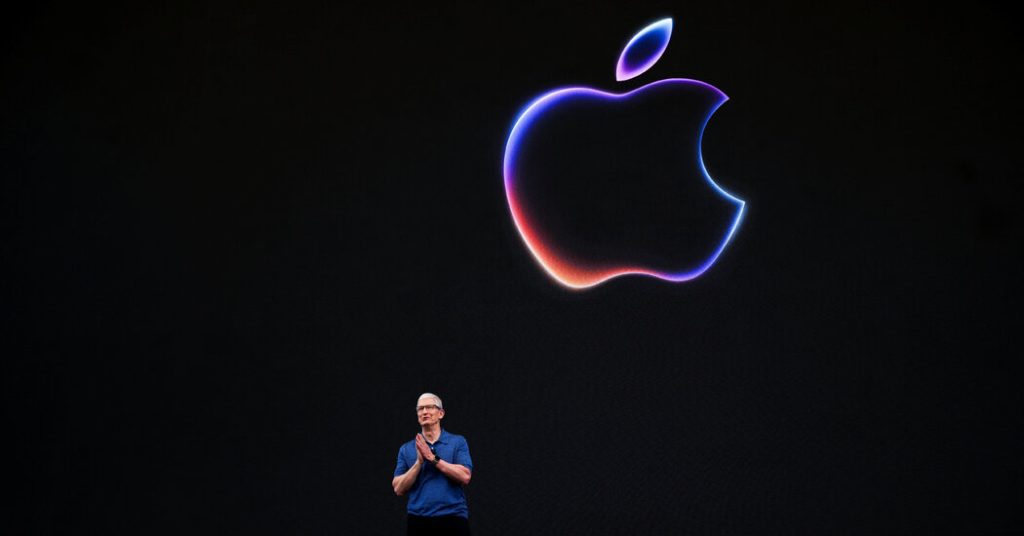Apple recently announced plans to incorporate generative artificial intelligence, called Apple Intelligence, into its products, reaching over a billion iPhone users worldwide. The technology will enhance features such as Siri, prioritize messages, provide writing tools for emails and notes, and improve privacy protections by performing tasks on the iPhone rather than in data centers. Apple is focused on integrating A.I. into its products while maintaining user privacy and ensuring the system reflects the core principles of its products.
In addition to A.I. enhancements, Apple is making improvements to its iPhone software system, such as messaging upgrades, a redesigned Photos app, and the ability to send high-resolution images to Android smartphones. Apple’s strengths in the A.I. race include its talented semiconductor development team and emphasis on protecting personal information. However, the company faces challenges in recruiting A.I. researchers due to its secretive nature and limited research publications. To overcome these weaknesses, Apple has partnered with OpenAI to provide generative A.I. technology support.
Siri, Apple’s virtual assistant, has been criticized for its limitations in recognizing requests and engaging in natural conversations. Generative A.I. technology could improve Siri by training it on spoken conversations to mimic human dialogue and understand context. Siri will be able to remember previous interactions and perform tasks within iPhone apps more efficiently. Apple’s push into generative A.I. was partly influenced by the success of other companies in the A.I. space and the need to stay competitive in the market.
Apple’s event showcasing its A.I. capabilities marked an important milestone in its relationship with developers, as tensions have risen over App Store regulations and fees. The company has faced legal challenges over its App Store policies, including resistance to allowing third-party payment alternatives that could circumvent its 30 percent fee. While facing regulatory scrutiny, Apple sought to highlight its commitment to developers and the innovation they can achieve through its products and platforms.
Looking ahead, Apple announced plans to expand sales of its Vision Pro mixed reality headset beyond the United States to China, Japan, and Europe. The company unveiled new capabilities for the headset, including the ability to view older photographs in three dimensions and create virtual displays for Mac. Apple continues to innovate and invest in cutting-edge technologies, demonstrating its commitment to enhancing user experiences and staying ahead in the rapidly evolving tech landscape.


